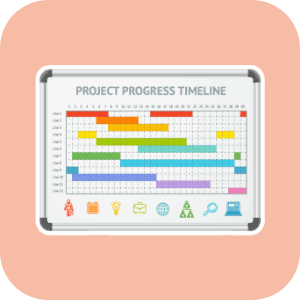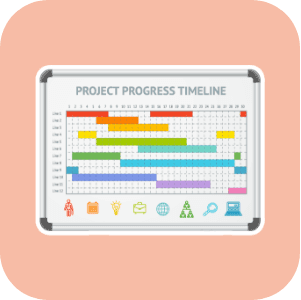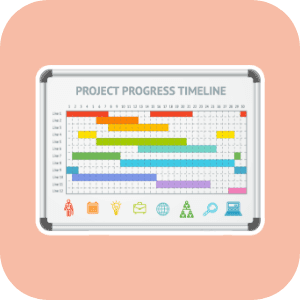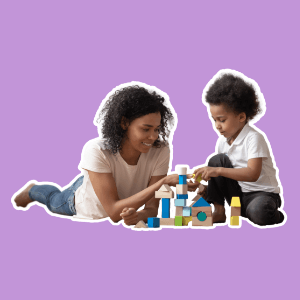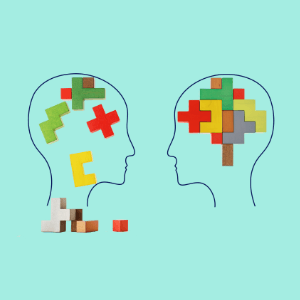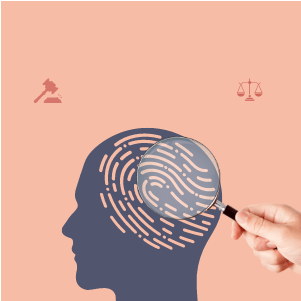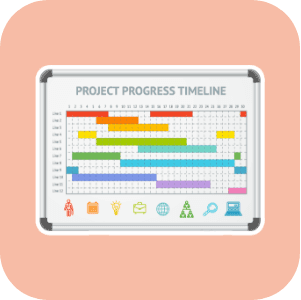Learn the basics of
Resilience Training for Employees
Empower your employees with the skills to cope with adversity and to use challenges to forge strength and prosperity. Developing employees with strong resilience can lead to increased productivity, focus, creativity and problem-solving skills, as well as developing a culture of productive responses and ultimately a happier, healthier workplace which improves employee retention and overall business resilience. This course aimed at building resilience for corporate leaders will provide your employees with an opportunity to become mentally stronger and learn skills to steadfastly overcome obstacles in life and thrive both personally and professionally.
Key Learning Objectives:
- Build self-esteem and confidence
- Build Self-control / agency and change management
- Find a sense of purpose and vision
- Build social skills and contribution
- Develop conflict and problem-solving skills

Ideal for:
All employees at all levels.
Course outcome:
Equip employees with resilience.
Course outline:
16
Weeks
04
Modules
32
Lessons
Course accreditation:
Upon completion of this leadership training course your employee will receive an accredited certificate assessed by global academic partner, the CPD Certification Service.
Globally recognised by:

Course details
MODULE 1
Self-esteem and confidence
MODULE 1
Self-esteem and confidence
1.Bounce back with resilience
Do you know that resilience is the ability to bounce back from difficult situations, failure, or trauma? To have the strength to carry on despite what you have been through, and to also have grown beyond it to become a stronger person by having resilience within you greatly aids in well-being and mental health. Some people are well equipped with resilience whilst some must work hard to develop resilience to become mentally stronger. The good news is that this can be done, that is, resilience is a skill that through hard work and perseverance can be developed and enhanced. More good news is that you will learn all about resilience and how to become more resilient in this course.
2.Nurture yourself
Do you know about the importance or value of self-care? Self-care motivates you to maintain a healthy relationship with yourself so that you have the health and energy to be good to others too. You cannot give to others if you do not have to give anything yourself. Self-care is not selfish, but necessary. Psychology is all around us, and it is present in everything that we do. What do you think it says when you take care of yourself, and when you nurture yourself? What does it say to yourself, and what does it say to others?
3.Self-awareness
Resilience is the ability to cope with adversity and to use challenges to forge strength and prosperity. Having resilience does not mean that you don’t struggle, make mistakes, or need to ask for help. Resilient people keep plugging along even when the situation becomes ugly or exhausting. They learn from their mishaps and misfortunes, and they rely on others with confidence and trust. Self-awareness helps you build resilience so you’re able to bounce back from any setback in your life. When you understand your strengths and also areas for improvement, you’re able to adjust accordingly, acquire extra knowledge when necessary, and make positive decisions that reflect who you really are.
4.Self-esteem
1. Self-esteem is the confidence in one's own worth or abilities and is related to self-respect. Believing in yourself and accepting yourself for who you are is an important factor in success, relationships, and happiness and that self-esteem plays an important role in living a flourishing life (https://positivepsychology.com/self-esteem/). Self-esteem aids in our beliefs about our abilities and the motivation to carry them out reaching a state of fulfillment as we go through life with a more positive outlook as a result of a healthy self-esteem. Good, healthy self-esteem is responsible for helping us achieve our goals, and to survive and recover from disappointments and failures (see referenced material), thus helping us become more resilient.
5.Be aware of your thoughts
Resilient people don't let negative thoughts derail their efforts. Instead, they consistently practice positive thinking and they know when their thinking patterns are negative and dysfunctional and they work at improving such thoughts. They also know the effect of negative thinking. This means listening to how you talk to yourself when something goes wrong – if you find yourself making statements that are permanent, pervasive or personalized, correct these thoughts in your mind.
6.Cognitive Restructuring
Practice cognitive restructuring to change the way that you think about negative situations and bad events.
7.Embrace your emotions
"Lean into your own emotions and learn skills to become aware of your emotions, embrace it healthily and know how to deal with especially strong emotions in a constructive way. Although excessive negative feelings inhibit learning and communication, emotions play a vital role in relationships, conversations and feedback. They convey emphasis and let others know what we value. Emotional experiences stick with people, last longer in their memories, and are easier to recall. And extensive neuroscience research in recent decades makes clear that emotions are essential to our reasoning process: Strong emotions can pull us off course, but in general emotions support better decision making. So, while you’ll want to avoid triggering a threat response, don’t try to remove all emotion from your relating. That can diminish the impact of your presence and lead to a cycle of ineffective behaviour. Instead, aim for a balance: Express just enough emotion to engage the other person but not so much that you provoke a hosti
8.Relate with empathy
"Empathy can be defined as our ability to put ourselves in others’ shoes and appreciate how they are likely to be feeling or thinking in a given situation. What might it feel like to be them? Daniel Goleman, who coined the concept of ‘Emotional Intelligence’ stated that ’empathy is the most important people skill’. He says that empathy is an important communication skill, but it can be easily forgotten because we focus on what should be done in a situation, rather than on how the other person feels."
MODULE 2
Grow in self-control and mastering change
MODULE 2
Grow in self-control and mastering change
1.Relating well to others
"As humans are not made to live isolated lives, we are meant to support each other and to be connected to each other through solid and trustful connections and loving and supportive friendships. To become more resilient, a strong network of friends and family is necessary. "
2.Address your anger/h6>
We have all felt anger: whether as a fleeting annoyance or as full-fledged rage. Anger is a completely normal, usually healthy, human emotion. But when it gets out of control and turns destructive, it can lead to problems—problems at work, in your personal relationships, and in the overall quality of your life. And it can make you feel as though you're at the mercy of an unpredictable and powerful emotion.
3.Overcoming anxiety and stress
"Coping with stress, or better to say, effectively coping with stress contributes directly towards building resilience. The whole idea of being emotionally resilient revolves around how well we are able to handle stress and get back on the track Getting tied down with the daily stressors of life can be a big reason that we lose our emotional resilience. We become more sensitive, over-reactive, and emotionally unbalanced. Even a little change of plans can leave us in a state of anxiety and panic. Studies have indicated that resilient individuals can deal with stress more effectively. They can bounce back from any stressful situation with positive energy and confidence, and they are more likely to learn lessons from traumatic encounters rather than get overwhelmed by them (American Psychological Association, 2012). Today we will unpack how to overcome your own anxiety and stress and build your resilience. "
4.Problem-solving
"People who are resilient will have effective and efficient problem solving skills. They will be able to understand a situation, identify the correct issue and create the best solution. They are unlikely to misread the situation, identify the wrong topic and then produce the incorrect answer to that issue. Those who are not as resilient may not solve problems as well and may inadvertently choose options to make the situation worse. In this lesson we will look at ways and techniques to grow in problem-solving skills and become more resilient! "
5.Learn from failures
Every mistake has the power to teach you something important, so look for the lesson in every situation. Also, make sure that you understand the idea of "post-traumatic growth" – often people find that crisis situations, such as a job loss or the breakdown of a relationship, allow them to re-evaluate their lives and make positive changes.
6.Embrace change
Be flexible. Resilient people understand that things change, and that carefully-made plans may, occasionally, need to be amended or scrapped. Flexibility is an essential part of resilience. By learning how to be more adaptable, you'll be better equipped to respond when faced with a life crisis. Resilient people often utilize these events as an opportunity to branch out in new directions. While some people may be crushed by abrupt changes, highly resilient individuals are able to adapt and thrive.
7.Become self-motivated
"The ability to motivate yourself is another important skill for resilience. Self-motivation drives people to keep going even in the face of set-backs, to take up opportunities, and to show commitment to what they want to achieve. Self-motivation is, in its simplest form, the force that drives you to do things. The topic of self-motivation, however, is far from simple. "
8.Growing in Maturity
Mental health is synonymous with maturity, and maturity is born of responsibility. You cannot be mentally or emotionally healthy if you are irresponsible. People with maturity understand a great truth; they understand that life is difficult. In being able to accept this fact about life, mature people learn to handle life in all of its difficulties, not expecting it to be different. They have learned to accept that not everything in life is going to be their way, show up in the way they thought it would and nor will the world change on its axis to make them happier. Mature people know for any change to happen it has to come from within themselves, and this is where success or failure develop. The only way to live a more fulfilling, successful and purpose-driven life is when the choice is made to fully develop and live the attitudes and principles of a matured person.
MODULE 3
Advanced in Building Resilience
MODULE 3
Advanced in Building Resilience
1.Build strong connections
People who have strong connections at work are more resistant to stress, and they're happier in their role. This also goes for your personal life: the more real friendships you develop, the more resilient you're going to be, because you have a strong support network to fall back on. It's important to have people you can confide in. Having caring, supportive people around you acts as a protective factor during times of crisis. While simply talking about a situation with a friend or loved one won't make your troubles go away, it allows you to share your feelings, get support, receive positive feedback, and come up with possible solutions to your problems.
2.Interpersonal relations and rapport
In this lesson we will focus on key skills that support social interaction and should you grow in these areas, so would your ability to have more fulfilling and effective interactions! Rapport is the gateway to trust. Rapport is what allows people to feel relaxed with you and open up – so that personal barriers and fears can be identified. It also allows the relationship to grow in capacity to handle tougher circumstances and conversations.
3.What about boundaries?
"Boundaries define us. They define what is me and what is not me. Knowing what I am to own and take responsibility for gives me freedom. If I know where my ""yard"" begins and ends, I am free to do with it what I like. Taking responsibility for my life opens up many different options. However, if I do not ""own"" my life, my choices and options become very limited. In addition to showing us what we are responsible for, boundaries help us to define what is not on our property and what we are not responsible for. I am responsible for me, and I am responsible to you (not the other way around…)"
4.Assertiveness
"Being assertive means finding the right balance between passivity (not assertive enough) and aggression (angry or hostile behavior). It means having a strong sense of yourself and your value, and acknowledging that you deserve to get what you want. And it means standing up for yourself even in the most difficult situations. It likely won't happen overnight but, by practicing these techniques regularly, you will slowly build up the confidence and self-belief that you need to become assertive. You'll also likely find that you become more productive, efficient and respected, too."
5.Conflict handling Part 1 - Personal conflict
"Conflict is simply the art of skillfully navigating our daily communication through the obstacles of differences in perceptions, opinions, meaning and values! Creative problem-solving strategies are essential if we want to have a positive approach to conflict management. We need to transform the situation from one where it is 'my way or the highway' into one where we are willing to entertain new possibilities that would have been excluded, possibly because we have been defending against our own perception of threat! Combined with understanding boundaries and assertiveness as discussed in our previous lesson, you are well on your way in mastering relationship management – all that is left is living it out in your daily life and behaviour!"
6.Conflict handling Part 2 - Models for conflict handling
The concepts and tools of conflict handling models are designed to help us think, listen and speak in ways that awaken compassion and generosity within ourselves and between each other. It ensures that our motivations for helping ourselves, and each other, are not from fear, obligation or guilt, but because helping becomes the most fulfilling activity we can imagine.
7.Daring to be vulnerable - Part 1
As human beings, we have a fundamental need for connection, love, and belonging. Yet, we fear rejection and are afraid we're not good enough. We try to hide our vulnerabilities, only to create a greater disconnect with our families, communities, and work. This lesson aims to explain the concept of vulnerability, because embracing one’s vulnerability and imperfection is necessary for achieving real engagement and social connection, in order to bring about fulfilling connections and wholehearted living!
8.Daring to be vulnerable - Part 2
This lesson aims to empower you to overcome your shields of armour, so that you overcome the need to avoid vulnerability, and we also look at how to practice vulnerability in healthy and influential ways.
MODULE 4
Proficient in Building Resilience
MODULE 4
Proficient in Building Resilience
1.Leverage the speed of trust
"Trust is beneficial to us, as it facilitates good communication. For example, it’s far easier to understand someone when you trust them. You’ve probably experienced times when your best friend (whom you trust) understands what you’re saying even when you aren’t speaking clearly. Conversely, you’ll find it harder to understand what people you’re not so familiar with are talking about, even if they’re speaking in plain terms. In this first of a 2 part lesson on trust, we focus on the importance of trust and how it can improve all aspects of our lives, from personal relationships to productivity in the office. Trust improves communication, and in doing so, speeds up efficiency and lowers cost at the same time."
2.Inspire Trust
"Trust is essential to wellbeing. But look around today and we see we are smack in the middle of a trust crisis where social, healthcare, economic, media and political distrust jeopardise our lives. In this second of a 2 part lesson on trust, we will be focusing on the trait of trust and how it can improve both our personal and professional lives. From relationships at home to leadership skills at work, it’s an essential component of communication, productivity and efficiency. Although we consider trust to be abstract and obscure, like love, it’s actually a measurable factor for that we can improve! "
3.Finding purpose
"Without a life purpose, you’ll continue feeling stuck, like you’re moving in circles, watching as time continues to pass you by. A life purpose is like a compass, guiding you over life’s path. Keeping you centred, focused and clear on what really matters to you and what you want from life. Without a life purpose as the compass to guide you, your goals and action plans may not ultimately fulfil you. Here’s the truth: you already know what your life purpose is. The answer is waiting inside you. You just have to know how to pull it out. In this lesson we will seek to clarify your purpose and sense of meaning in life. In order for you to live your life from the inside out, with a meaningful why, a reason to live and get up in the morning to live life to its fullest! In doing so, you will be able to take any individual in your life through the same process! In the face of crisis or tragedy, finding a sense of purpose can play an important role in your recovery (and building resilience). "
4.Clarify Vision
"To find success, you not only have to know where you are now, but you also need to know where you want to end up. You need to be able to imagine what that place—your place of success, that place you want to be in life—feels like, sounds like, smells like, tastes like. You need to clarify your destination so you will be sure to know it when you arrive. Your personal vision is how you commit to living your life. It influences all areas including family, spirituality, physical well-being, leisure, and work. A clear personal vision is an integration of your abilities, interests, personality, values, goals, skills/experience, family of origin, and stage of adult development. That’s huge! If you have a personal vision, you will have a guide for decisions, become meaning-driven and inner-directed, think in the long-term, and maintain balance in your life. Studies consistently show that this one factor, personal vision, is more important in both success and satisfaction than any other factor – more important than intelligence, socio-economic background, or education."
5.Clarify Values & Goals
"In this lesson, we will have a look at the ‘how’ and ‘what’ statements. Because in order to create harmony between WHY, HOW, and WHAT, you need: • Clarity of WHY (clarifying our purpose and vision) • Discipline of HOW (clarifying our values) Personal values provide the groundwork to create your most authentic and purposeful life. It can help you identify your motivations, set healthy boundaries and make important life decisions. Life can become so much more fun and satisfying when you have clarity about your needs and expectations • Consistency of WHAT (setting goals of what we will do to achieve the above) "
6.The power of positivity
"Staying optimistic during dark periods can be difficult, but maintaining a hopeful outlook is an important part of resiliency. What you are dealing with may be difficult, but it's important to remain hopeful and positive about a brighter future. Positive thinking does not mean ignoring the problem in order to focus on positive outcomes. It means understanding that setbacks are temporary and that you have the skills and abilities to combat the challenges you face. "
7.Embrace your Strengths
In this lesson we will strive to understand personality theory, traits and characteristics in order to observe patterns of behaviours and characteristics that can help predict and explain a person's behaviour. This is not only helpful as a person where you can adapt and connect to the personality you observe in others (in order to build rapport), but also as you explain and allow your loved ones or employees to understand their own and other’s personality, that it will cause them to grow in insight and understanding of themselves and others in a great way.
8.Pro-active Coping
In this lesson we aim to end off the concept of resilience and well-being by looking at the interesting concepts of pro-active coping, eustress and reminders to keep growing and flexing our psychological ‘muscles’ if we aim to live a resilient life filled with well-being.




